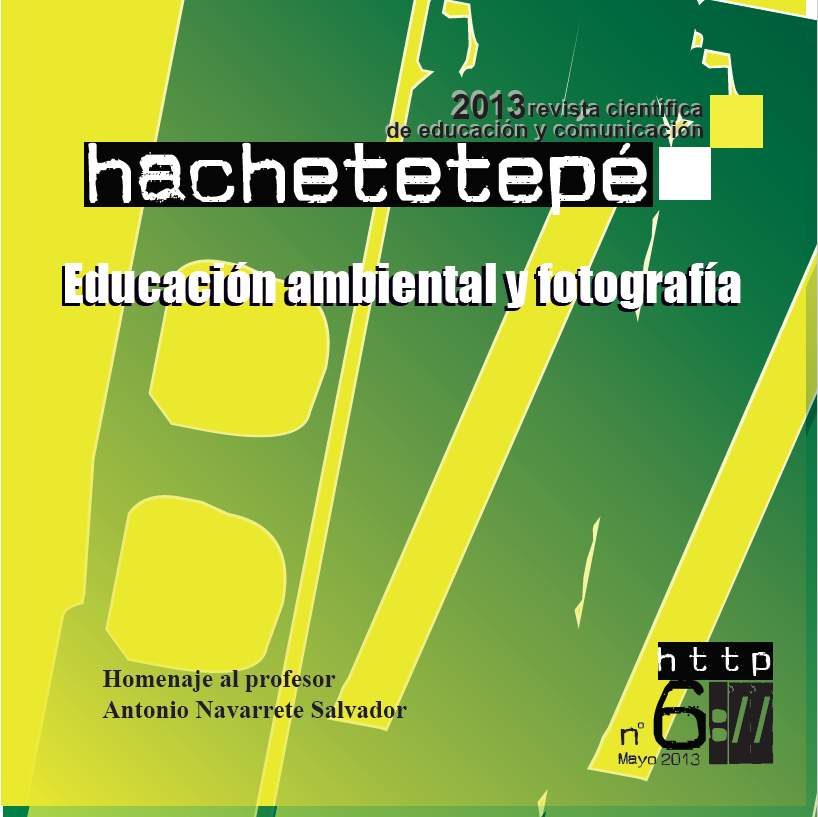Responsible Consumerism and Active Ageing. A Qualitative Study of Approximation
Abstract
In the imagery of other possible worlds, Environmental education is a powerful tool to transform society, and rational consumerism a primordial action. This attitude irradiates from a reflexive and critical attitude with our daily consumer habits. We shall therefore pose the following questions: what connotations does all this have; what are the perceptions of these issues; how do we implant certain initiatives, and under what criteria. We shall set out to answer these questions through a qualitative study of an interpretative nature. The nucleus of our research shall centre on “characterise responsible consumerism within a group of elderly people, contextualised in the phenomenon of active ageing.” The central objective of this study is to elaborate and validate the means of data collection, i.e. questionnaires and interviews, and these shall be analysed through a system of analysis reference that reflects the cognitive, affective, and action in the field.
Keywords
Downloads
How to Cite
License

This work is licensed under a Creative Commons Attribution-NonCommercial-NoDerivatives 4.0 International License.
Those authors who have published with this journal, accept the following terms:
- They will retain their copyright and guarantee the journal the right to first publication of their work, which will simultaneously be subject to the Creative Commons Attribution License . They may be copied, used, disseminated, transmitted and publicly displayed, provided that the authorship, url, and magazine are cited, and are not used for commercial purposes. No derivative works are allowed.
- They may adopt other non-exclusive license agreements for the distribution of the published version of the work (e.g., deposit it in an institutional telematic archive or publish it in a monographic volume) provided that the initial publication in this journal is indicated.
- Disseminate your work through the Internet (e.g., in institutional telematic archives or on your website) once the manuscript is accepted, which may lead to interesting exchanges and increased citations of the published work. (See The effect of open access).
Hachetetepé. Scientific journal of education and communication does not charge a fee for the submission of manuscripts or for the publication of its articles.
References
Bárcena, I. (2002). ¿De qué hablamos cuándo hablamos de “Desarrollo Sostenible”? Discursos y Políticas ambientales en Lid. En línea en: http://www.localcambalache.org [Consultado el 13 de agosto de 2010].
Barrionuevo, M.B. (2004). ¿Qué cultura escolar estamos ensayando? Contexto educativo. En línea en http://contexto-educativo.com.ar/2004/1/nota-04.htm [Consultado el 10 de septiembre de 2010].
Calima Consultoras, S. C. (2009). Diagnóstico sobre organizaciones de mayores y educación ambiental. Documento Inédito. Junta de Andalucía, Consejería de Medio Ambiente, Dirección General de Desarrollo Sostenible e Información Ambiental.
Calvo Aguilar, C. (2010). Pleonexía. El apetito insaciable de cosas materiales. En línea enhttp://www.gestiopolis.com/marketing/pleonexia-ambicion consumismoconsumidor.htm [Consultado el 15 de julio de 2010].
Carrasco Rosa, A. (2007). “La sociedad de consumo: origen y características". Contribuciones a la Economía. En línea en http://www.eumed.net/ce/2007a/acr.htm [Consultado el 27 de julio de 2010].
Colom, J. A. (2000). Desarrollo sostenible y educación para el desarrollo. Barcelona: Octaedro.
Comín, P. y Font, E. (1999). Consumo sostenible: preguntas con respuesta. Madrid: Icaria.
Educadores para la sostenibilidad. (2004). Manifiesto “Compromiso de una educación para la sostenibilidad”. En línea en http://www.oei.es/década/compromiso.htm [Consultado 31 de Julio de 2010]
Educadores por la sostenibilidad. (2007). Consumo Responsable. Eureka, 4, 189-192.
García Corrales, D. (2007). Estocolmo +35: evolución de la Educación Ambiental y retos para el futuro. Trabajo Fin de Máster. Máster oficial en Psicología, Educación y Desarrollo. Universidad de Cádiz: No publicado.
García Díaz, J.E. (2004). Educación ambiental, constructivismo y complejidad. Sevilla: Diada editora.
Karambolis, A. (2005). El discurso vacío de lo sostenible. En línea en http://www.ecoportal.net/ [Consultado el 12 de septiembre de 2010].
Lodeiro, T. (2008). Consumir menos, vivir mejor. Txalaparta: Tafalla.
Naciones Unidas, (1992). Informe de la Comisión Mundial sobre el Medio Ambiente y el Desarrollo. En línea en http://www.un.org/depts/dhl/spanish/resguids/specenvsp.html
[Consultado el 13 de julio de 2010].
Navarrete, A. (2010). El concepto de medio ambiente. Materiales Didácticos Máster Interuniversitario Educador/a Ambiental . Universidad de Cádiz: No Publicado.
Vilches, A., Macías, O. y Gil Pérez, D. (2009). Década de educación para la sostenibilidad. Temas de acción clave. OEI: Madrid.






